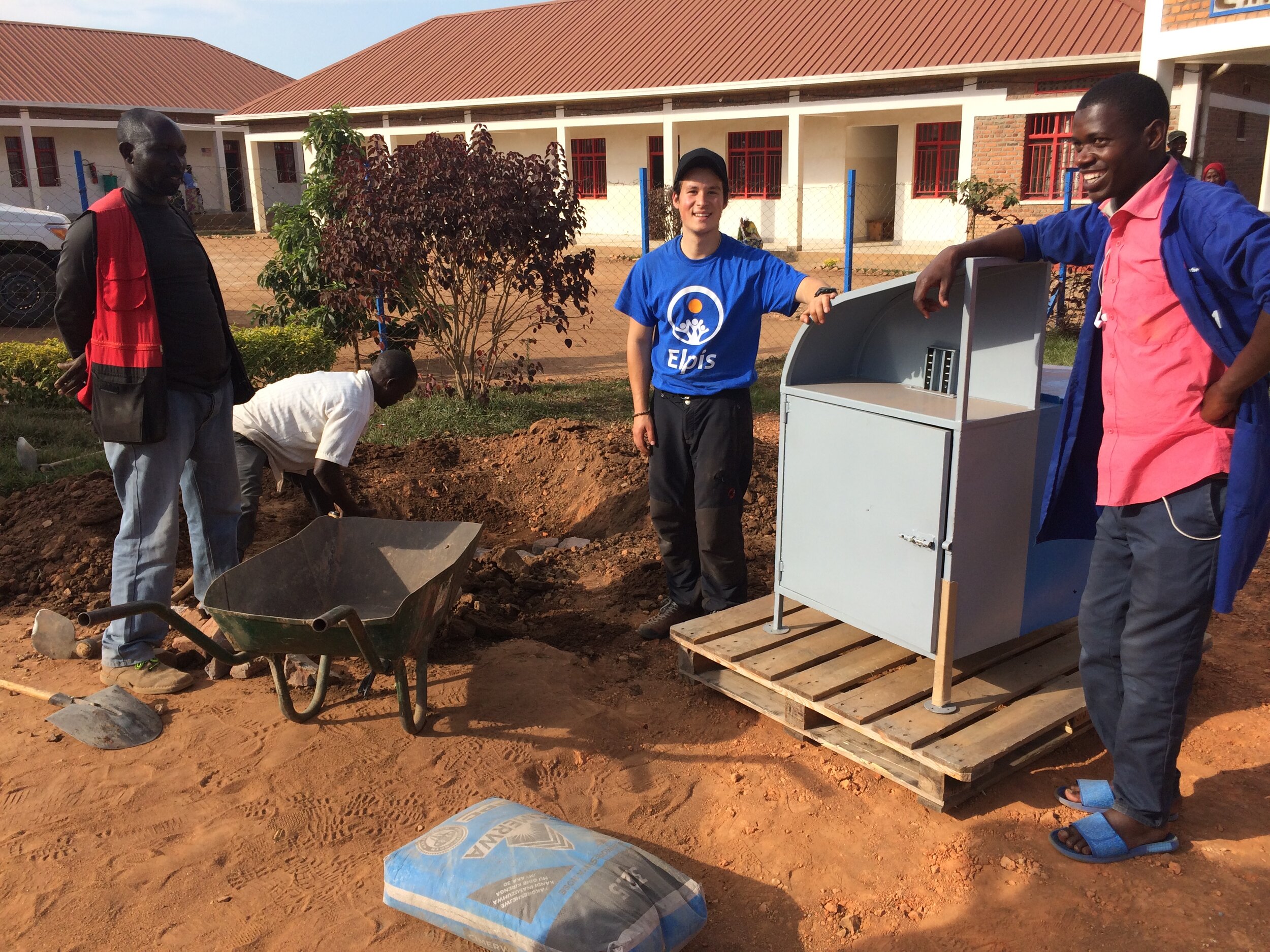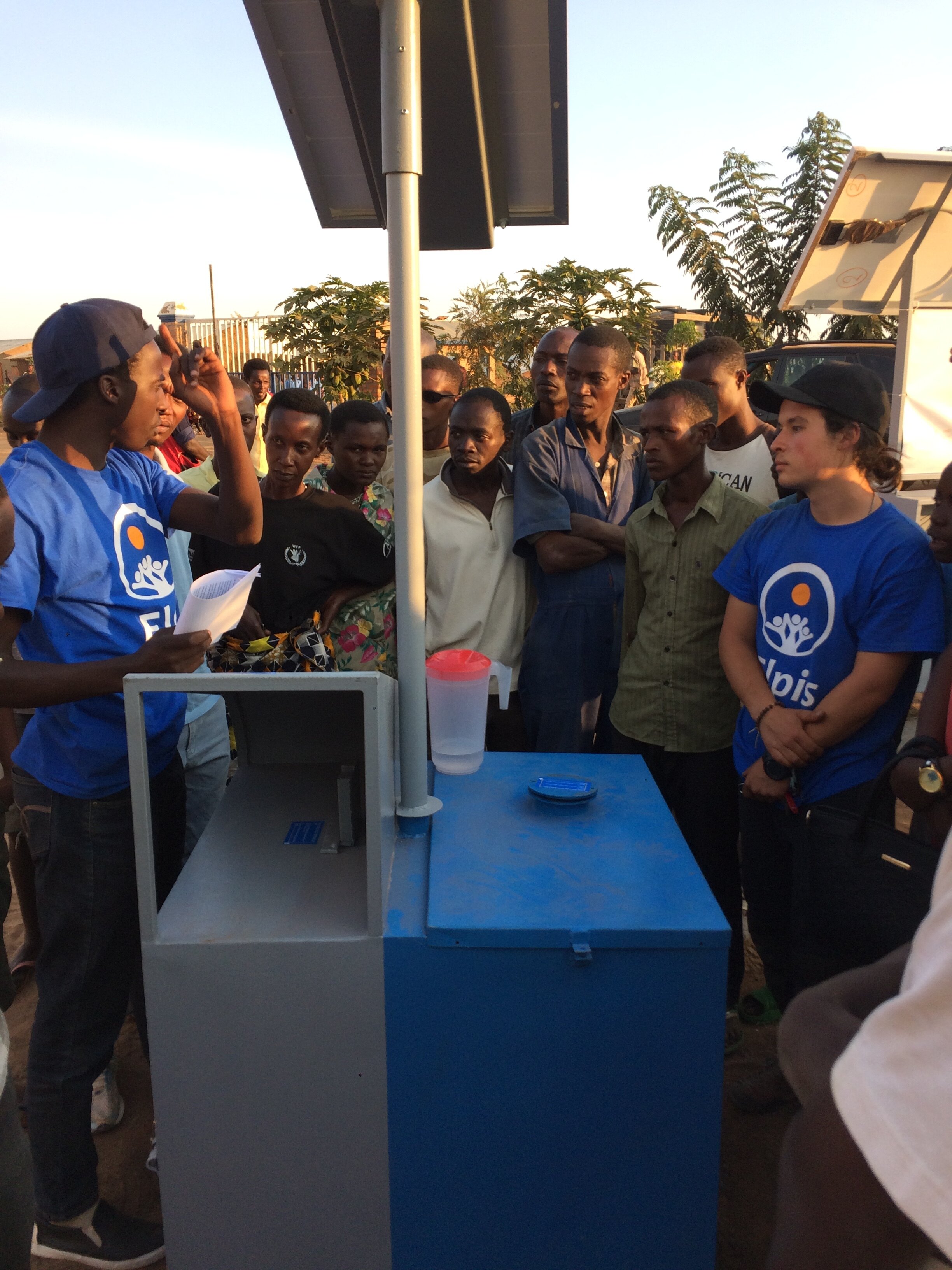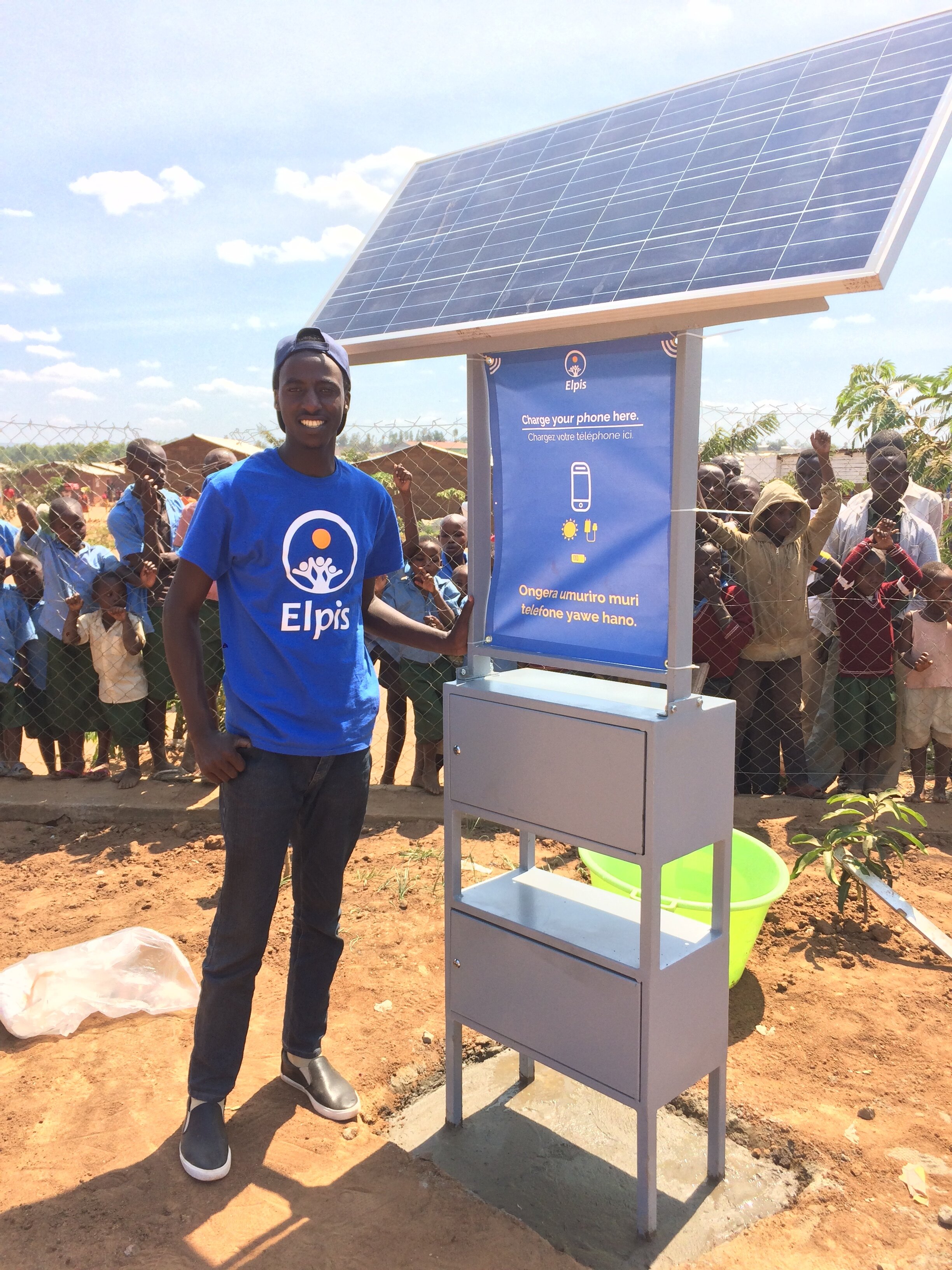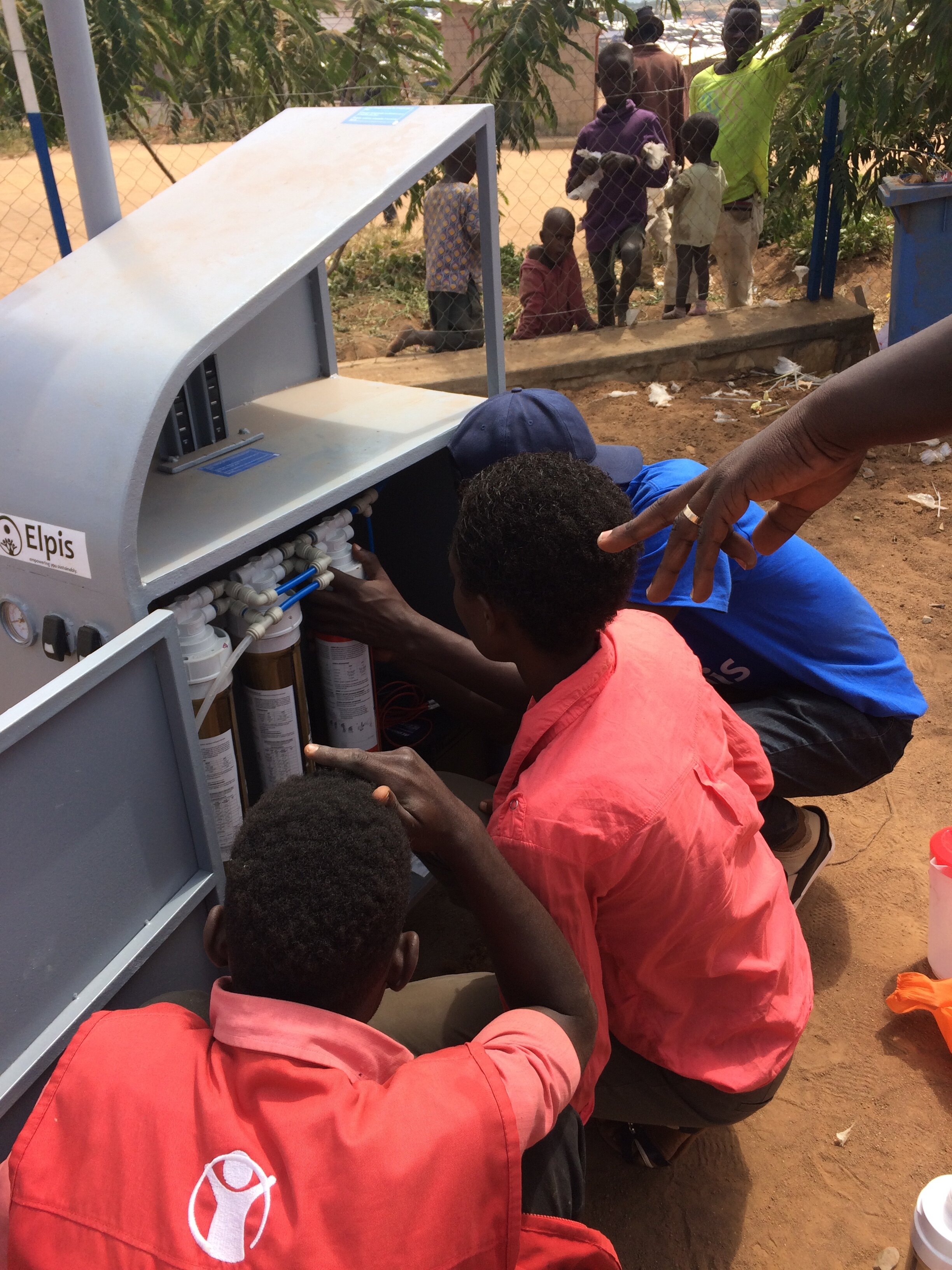Elpis Solar
Project: Elpis Solar
Country: Greece, Rwanda
Partner: Various Universities, UNHCR


The lack of electricity in camps reduces the potential for refugees to earn any income, and complicates economic participation with mobile money being a key financial vehicle across Africa. Concerns over water quality are leading many refugees to boil water which is resulting in the deforestation of the surrounding countryside. Furthermore, the lack of lighting in the evening is compromising safety, particularly for women and girls. With a growing number of smartphone users, connectivity is also a problem due to financial barriers. This, coupled with sparse in-camp educational opportunities for adults, means that many are left with little to no future employment prospects.
Project Description
A group of students from the University of Edinburgh, in collaboration with a Greek solar technology company developed two off-grid solar systems, a mobile phone charging system (SolarHub), and a charging system that also provides water filtration (Swapcy). 11 units across 6 refugee camps have been deployed so far:
SolarHub
A commercially deployable solar mobile phone charging station designed for emergency relief in off-grid scenarios. The SolarHub powers 3600 phones per month.
Swapcy
Equipped with a sediment filter and two integrated anti-microbial ultrafiltration membranes, Swapcy filters up to 9000 litres of water per month as well as charges 1200 phones and provides light in the evenings.
Digital-Hub
All of the units include an integrated offline educational content platform that is made available via a local WiFi hotspot. This ‘Digital-Hub’ currently contains over 250GB of educational content in French and English (complete copies of Wikipedia sorted by subject, over 40,000 e-books, TEDx videos, interactive science games, and others). Now anyone with a WiFi-capable phone can access this information without needing a connection to the internet.
ELPIS is deploying a micro-entrepreneur model that empowers camp residents to run their solar charging businesses. Unit managers gain valuable skills and income, whilst some of the proceeds cover operational and maintenance costs. The digital services platform will provide a direct way for digital service providers (humanitarian organisations, governments and private companies), to disseminate their content and advertise to a hard-to-reach and often neglected customer segment.




